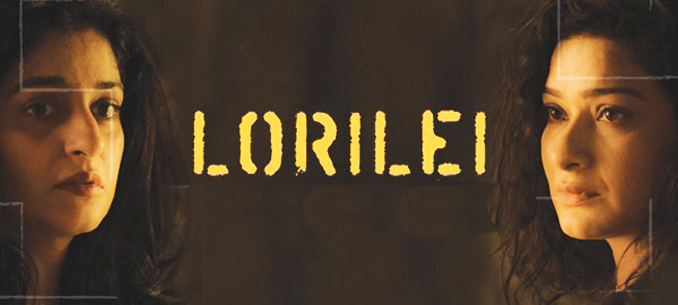Lorilei
作家: Abbas Hussain - 发表于: 2014年06月07日 | ENG (English)
Theatre has had a tradition of lending a voice to social issues, for it is a medium that allows actors to talk directly to the audience, playing out situations in real time directly in front of them The organization Justice for Pakistan is a legal charity that provides legal aid to Pakistanis in Guantanamo Bay, missing people and those accused of blasphemy, among others. The NGO in collaboration with OLOMOPOLO Media organized a play, Lorilei, based on the true story of a woman whose son gets brutally murdered by a pedophile.
Written by Tom Wright the play tells a story of compassion, conviction and courage. Lorilei’s six year old son gets killed by Rickey Langley. Langley was sentenced to death but Lorilei began a campaign against Langley’s execution. The play delves into the importance of tracing the root causes of crime and how sometimes criminals can themselves be victims in their past, consequently turning to crime owing to psychological or perhaps even physiological reasons. In order to seek closure, Lorilei wishes to seek answers to some questions she has regarding her son’s death. She discovers her son’s murderer to have had a tumultuous childhood marred by physical and mental abuse of the worst kind.
OLOMOPOLO Media handled the technical department and the producer Kanwal Khoosat discussed how the interplay of relationships in the story struck a chord with her. “OLOMOPOLO media took up the role of technical producers for the play Lorilei - A Meditation on Loss, because it was always about the story. Although, OLOMOPOLO is not about activism, we are all about stories, about relationships, and Lorilei dealt with losing a relationship - Lorilie losing her son, Jeremy, and coming to terms with it. It also deals with the relationship of the victim’s mother and the victim’s murderer. When we read the story, it struck a chord and we wanted to start working on it immediately.’’
Getting Nadia Jamil and Sania Saeed together in a theatre play is no mean feat. The two are touted as two of the most talented and sought after actors in the country and are quite picky about the projects they undertake. The play was performed on two days in English and Urdu. Nadia Jamil took to the stage on the first day, performing in the original English text, while Sania was part of the Urdu adaptation which she herself translated from English to Urdu. When one enacted Lorelei’s role, the other played the role of Ricky Langley.
It was a treat to watch the two actors perform in their own individual styles. Their interpretation of Lorilei’s character was different and hence the performances on the two days were unique in their own right.
Nadia Jamil played Lorilei in a more submissive manner. Her body language was meek and her expressions understated. The enactment flowed seamlessly; spontaneity is her trademark style, after all. Her Lorilei was very real and relatable and her gestures and pauses lent a great degree of potency to her very controlled performance. Though her Lorilei was gentler, Jamil did not take away from the strength of a woman who copes with the ultimate tragedy of losing a child in a grotesque manner with utmost resilience and having the cognizance to empathize with him.
Sania Saeed’s Lorilei was a feistier one; the portrayal was more dramatic and engrossed audience members throughout the duration of the performance. While Jamil’s characterization was emotional, Sania’s seemed to have been more overtly hardened by the bitter tragedies suffered by her. However, as she recounted moments of heightened emotions such as her son’s death, she let out a sea of emotions that depicted her pain in the most jarring manner.
It was interesting to see how the clothes of the actors varied on both days and how they were almost an extension of the undertones of the characters. Nadia Jamil’s Lorilei wore a skirt; as she sat on stage she was seen fixing her skirt sometimes while she crossed her legs. Sania Saeed wore pants on the day of her performance and her Lorilei was a less self-conscious one, exhibiting louder body gestures, appearing unfettered.
The meditation on loss by both actors was poignant and riveting and encouraged viewers to break out of the perspective of looking at things in black and white and to glance into the world of the outcast criminal by humanizing him.



